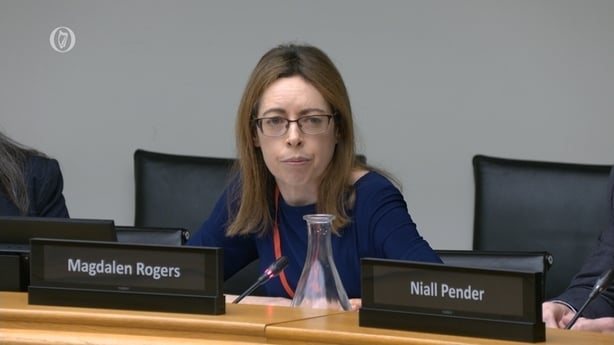The Oireachtas Committee on Health has been told that 85% of patients with a brain injury or a neurological disorder do not have access to a rehabilitation team in the community.
The committee also heard that a "postcode lottery" exists when it comes to vital neurology services.
Neurological Alliance of Ireland Executive Director Magdalen Rogers said seven of the nine HSE areas (known as CHOs) nationwide have no neuro-rehabilitation community teams up and running.
This was despite the fact that a strategy for this area has been in existence since 2019.
"Delays in implementing the framework for the neuro-rehabilitation strategy have meant that no additional teams were established on the ground over the three-year implementation period 2019-2021."
The community teams provide short-term intensive rehab for up to twelve weeks.
They also link in with multi-disciplinary services including physiotherapy, speech and language therapy, occupational therapy, social work and psychology.
"The consequences are a significant, and preventable, level of disability resulting in higher healthcare utilisation and increased costs to the health service through earlier admission to nursing homes, need for home care supports as well as increased likelihood of falls and subsequent hospital readmissions," she added.

According to Ms Rogers "the bed day saving from having the national network of community neuro-rehabilitation teams in place is up to 42,000 bed days annually, based on an average saving of three bed days if they can be discharged to a community neurorehabilitation team."
She said this means the lack of community teams is exacerbating the problem of delayed discharges and further limiting access to inpatient neuro-rehabilitation in facilities such as the National Rehabilitation Hospital.
Sinn Féin Spokesperson on Health David Cullinane said there are no buildings required to get the community teams up and running, it is staff that are required.
"It is hard to see why there is no momentum on the teams when we are halfway through the year," he said.
Principal neuropsychologist at Beaumont Hospital in Dublin Professor Niall Pender said that "people are discharged from acute care, and they are lost.
"We have people struggling with neurological injuries and disabilities and they have to find the care for themselves."
He told Social Democrats TD Róisín Shortall that having the community supports in place "benefits the individual, the family and society, as well as having employment benefits.
"Many people's relationships break down, 20% with mild head injuries will not be back at work after a year, those with moderate to severe injures will not be back to work.
"40% of rough sleepers or homeless people have had a brain injury at some point, people in prison have higher rates of brain injuries."







